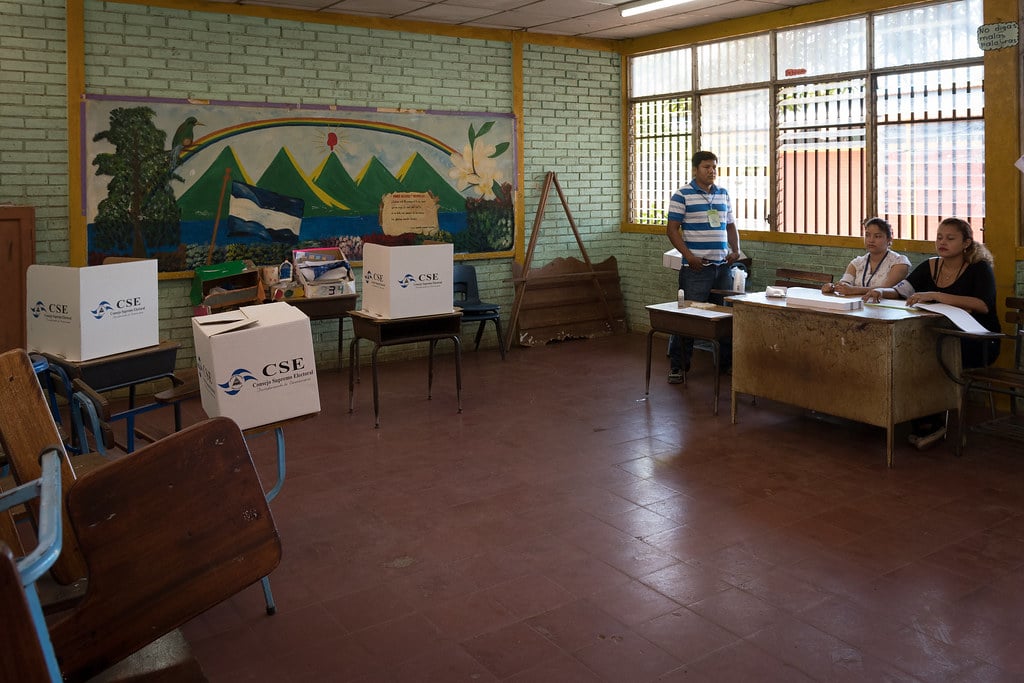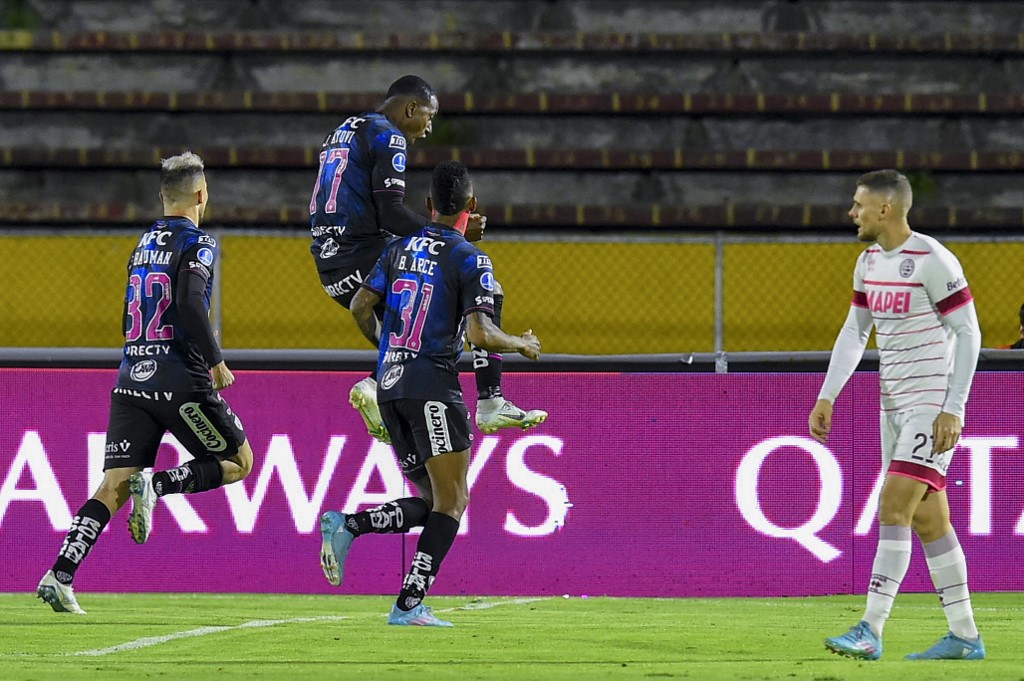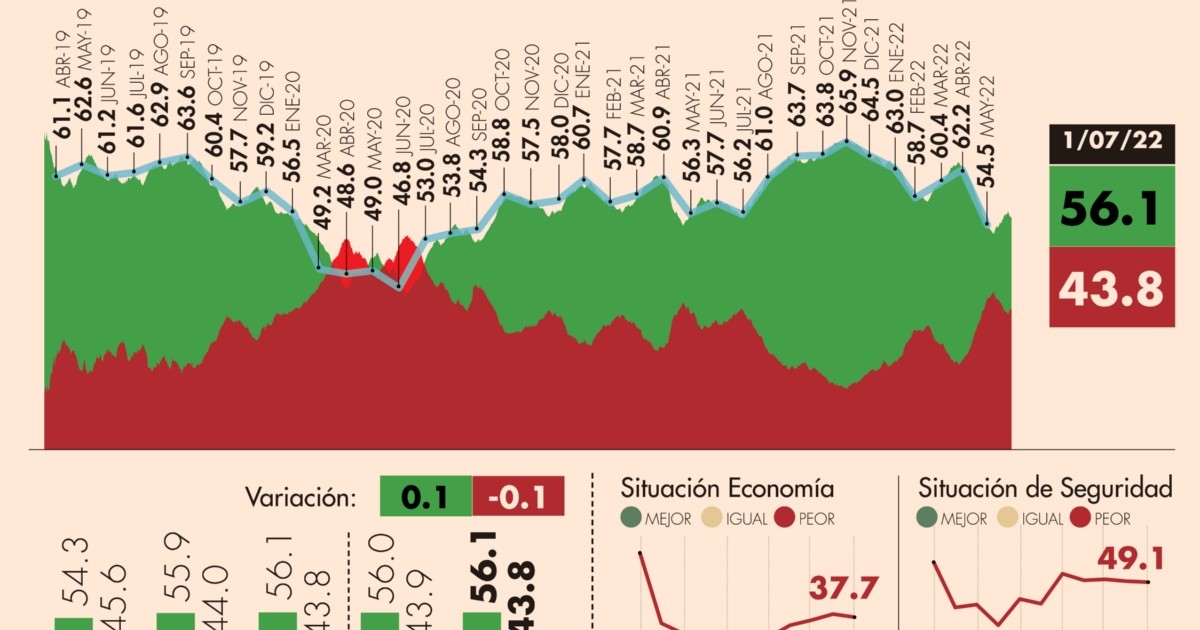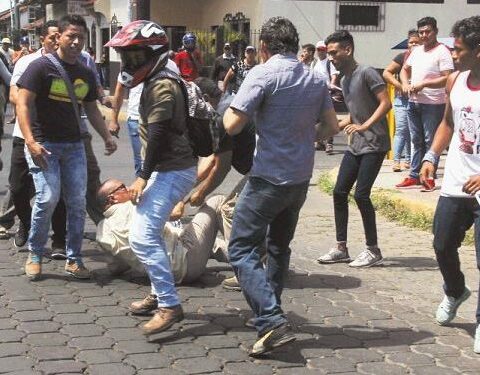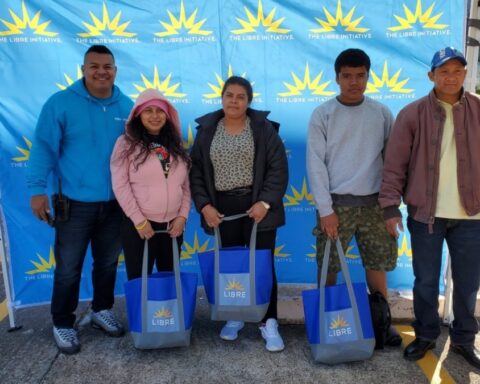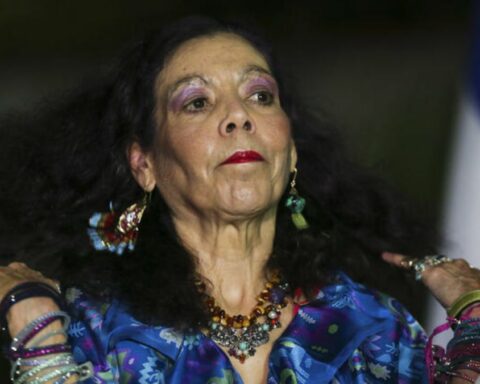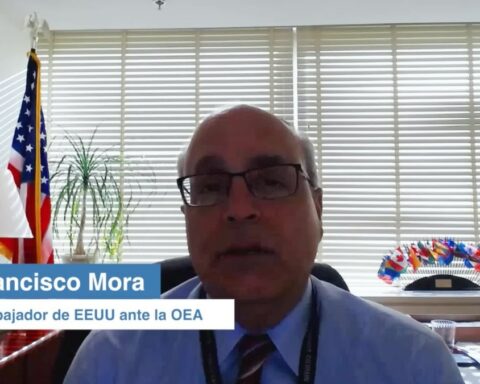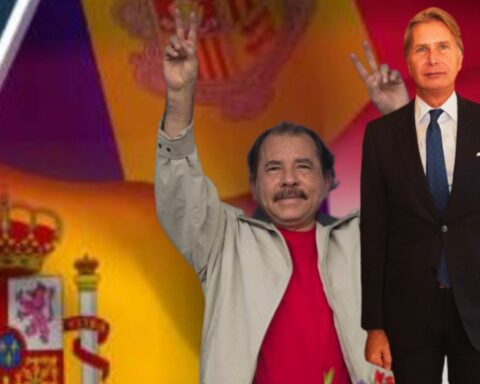The town of Santa María de Pantasma, elevated to a municipality in 1989, has never been governed by a mayor from the Sandinista Front. A particularity that highlights the mayor of that town, Oscar Gadea Tinoco, who fears a change in the Administration. “It would be ugly to come (to the Mayor’s Office) and see red and black flags, where we have never seen them placed,” he warns.
The fear of the mayor of the Citizens for Freedom (CxL) is based on two reasons: the impossibility of competing for one more term, before the cancellation of the legal personality of CxL, in August 2021; and the certainty that the remaining parties are “collaborators” of the FSLN.
“The situation we have as mayors is more difficult than ever. We are without a political party, and the parties that are supposed to participate, if there are elections, are ‘stilt walkers’ or related to the Government”, warns Gadea in an interview with CONFIDENTIAL Y This week.
Municipal elections are scheduled to be held in Nicaragua on November 6, according to the periods established by the Political Constitution and the current Electoral Law; however, the Supreme Electoral Council (CSE) still has not officially called the elections.
“The situation of Santa María de Pantasma is peculiar and difficult as mayor, because it is a municipality that has never been in the hands of the Sandinista Front, and there is enormous pressure from the population so that this mayor’s office does not surrender, but rather they have to fight for keeping democracy in force in this municipality”, he comments.
Gadea has been mayor of Santa María de Pantasma in three different periods, and with three different parties, all liberal. In 2004 he won with the Constitutionalist Liberal Party (PLC); in 2012 with the Independent Liberal Party (PLI); and in 2017 with CxL.
“There are no conditions”
“The healthiest thing for the country is that no party would lend itself to this (municipal elections). That all the parties said: ‘here we do not have the conditions to go to elections’, for everything that has been violating the Electoral Law. It would be the most logical”, says the mayor.
In the last electoral processes, the regime of Daniel Ortega and Rosario Murillo has adjusted the Electoral Law to its measure. The last reform – consulted only with the magistrate Brenda Rocha, president of the Electoral Power, and representatives of the collaborationist parties – occurred on May 5, and in it an express electoral process was established.
According to the reforms, the political parties will only have five days to present their lists for the Departmental or Municipal Electoral Councils and the number of Vote Receiving Boards (JRV) will be less than the 13,459 that worked in the general voting of 2021, in which Ortega annulled the electoral competition to guarantee his fourth consecutive presidential term, described as “illegitimate.”
The electoral campaign period was also reduced from 42 to 20 days, in the case of municipal votes, and 30 days for presidential elections. According to the Special Commission of a Constitutional Character -created to consult the electoral reform- this change is due to a “simplification of the deadlines”, since it is a measure “coherent with the preservation of the environment insofar as it implies less use of physical propaganda that generates great amount of waste.
The reform also expanded the number of voters per JRV, going from 400 to 600 voters. Such a situation was justified by the deputies because supposedly “it will allow the State of Nicaragua and the political parties to reduce the costs of operation and organization during the electoral processes in general.”
For the sociologist and political scientist Silvio Pradospecialized in municipalism, the position of Ortega is that of “a dictatorship that is not willing to raffle off power” and that seeks to “reduce, as much as possible, any uncertainty arising from the elections.”
“The delay (in the calling of the elections) gives the Sandinista Front all the security of being the only party that can compete with all the possible guarantees of presenting candidates, alliances, platforms, and of carrying out an electoral campaign,” he explains.
Experts and electoral organizations have anticipated that next November the “2021 electoral farce” will be reissued, when the Ortega and Murillo binomial was re-elected for one more period, but before they adjusted the Electoral Law to their convenience, they intensified the persecution against opponents and eliminated all political competition, by imprisoning and sentencing in the last year – to sentences of between eight and thirteen years in prison for the crime of “treason against the fatherland” – seven candidates for the presidency and more than forty political, civic, trade unions and independent professionals.
“Here are not the conditions to go to elections; the dice are loaded to assign all mayorships”, highlights Gadea.
FSLN in each election adds mayorships
When it came to power in 2007, the Sandinista Front governed 87 mayoralties in Nicaragua, followed by the Liberals of the PLC with 57, and far behind the Alliance for the Republic (APRE) with four; the Yatama regional indigenous party with three; and the Nicaraguan Resistance Party (PRN) with one.
In the 2008 municipal elections, the FSLN hatched its first “electoral fraud.” In the process, theft of ballot boxes, theft of clear victories by opposition mayors and changes in the percentage of votes overnight were reported, with the support of the repressive forces of the Police, shock groups of the Sandinista Youth (JS ), and regime paramilitaries.
Ortega’s party was awarded 105 of the 146 mayors in dispute —some Caribbean municipalities did not participate because they were affected by Hurricane Felix. The PLC obtained 37, and the Nicaraguan Liberal Alliance (ALN) four.
For the 2012 elections, the regime seized 134 mayoralties, while the Electoral Power granted thirteen mayoralties to the Independent Liberal Party (PLI); three to Yatama; two to PLC; and one to APRE.

In the 2017 votes, the ruling FSLN granted itself 135 mayorships and the remaining 18 were distributed among the PLC (twelve), CxL (five) and ALN (one). However, on October 27, 2020, councilors from the Sandinista Front —protected by the Police and Ortega paramilitaries— they took over the Wiwilí Mayor’s OfficeJinotega, which was in the power of the PLC.
Prado underlines that, unlike the last municipal elections, the regime “has toughened the obstacles” for opponents, and above all “has imposed a climate of terror among the population, so that they do not organize and vote freely.”
The citizen observatory Urnas Abiertas quantified in 81.5% abstention in the 2021 votingdescribed as “illegitimate” by the governments of different Latin American countries, the European Union and the Organization of American States (OAS), as they do not meet “minimum guarantees” of transparency.
Role of the “opposers”
“Under the current circumstances, the Sandinista Front, which owns the entire electoral system in the country, can do whatever it wants and nobody prevents it,” says Prado.
For the next municipal elections, the FSLN candidates will foreseeably compete against the candidates of the only parties authorized by the regime, which for the elections last November did not exceed the threshold of 4% sympathy among the Nicaraguan population, according to a survey by the Costa Rican firm CID Gallup, hired by CONFIDENCIAL.
The PLC registered 4%, the PLI 3%, ALN had 2%, while Camino Cristiano Nicaragüense (CCN) and APRE registered 1%, according to the survey.
Mayor Gadea rules out the possibility of standing for re-election under the banner of another party, although he reveals that leaders of the PLC and ALN have offered him their seats. “They said ‘we want to support you, we are not here to ask for a position. The only thing we want is for the mayor’s office not to fall into the hands of the Front’. Which is hard to believe them, ”he valued.
“What good is it for you to win this mayor’s office with any party, if you don’t have the certainty that someone is going to defend it for you. Just as Mrs. María Haydée Osuna lent herself to remove the legal status of Citizens for Freedom, she says ‘we are going to leave (the mayor’s office) to the Front, and all the struggle of this town is over,’ says the mayor of CxL.
Osuna, president and legal representative of the PLC, filed with the Electoral Power, in August 2021, a complaint against CxL for alleged violations of the Electoral Law, for which they demanded the cancellation of the legal personality of the political party.
Three months before the illegalization of CxL, the CSE had already canceled the legal status of the Democratic Restoration Party (PRD). Both political parties were the electoral vehicles that the main opposition groups—the National Coalition and the Civic Alliance—had chosen to compete against the regime.
In the midst of both cancellations, the regime also annulled the legal status of the Conservative Party (PC).
Mayors of CxL direct five municipalities of the 153 in the country. In addition to Santa María de Pantasma, there are El Cuá, San José de Bocay and San Sebastián de Yalí, all in Jinotega; El Almendro, in Río San Juan; and Murra, in Nueva Segovia.
According to Gadea, the party leadership and the mayors “agree that there is no need to participate.”
“They (the CxL leadership) tell you that talking to another party is being a collaborator or just another ‘mosquito’. If you take on a challenge and your own political costs of submitting to this (a re-election), you will be dismissed from the party”, underlines the Pantasma councillor.
CONFIDENTIAL unsuccessfully tried to interview the other four mayors of CxL. For Gadea, this silence is due “to everything that has been seen (in the country). Every person who raises their voice is in jail or in exile, and there are many dead. That is the fear of people who do not speak.

